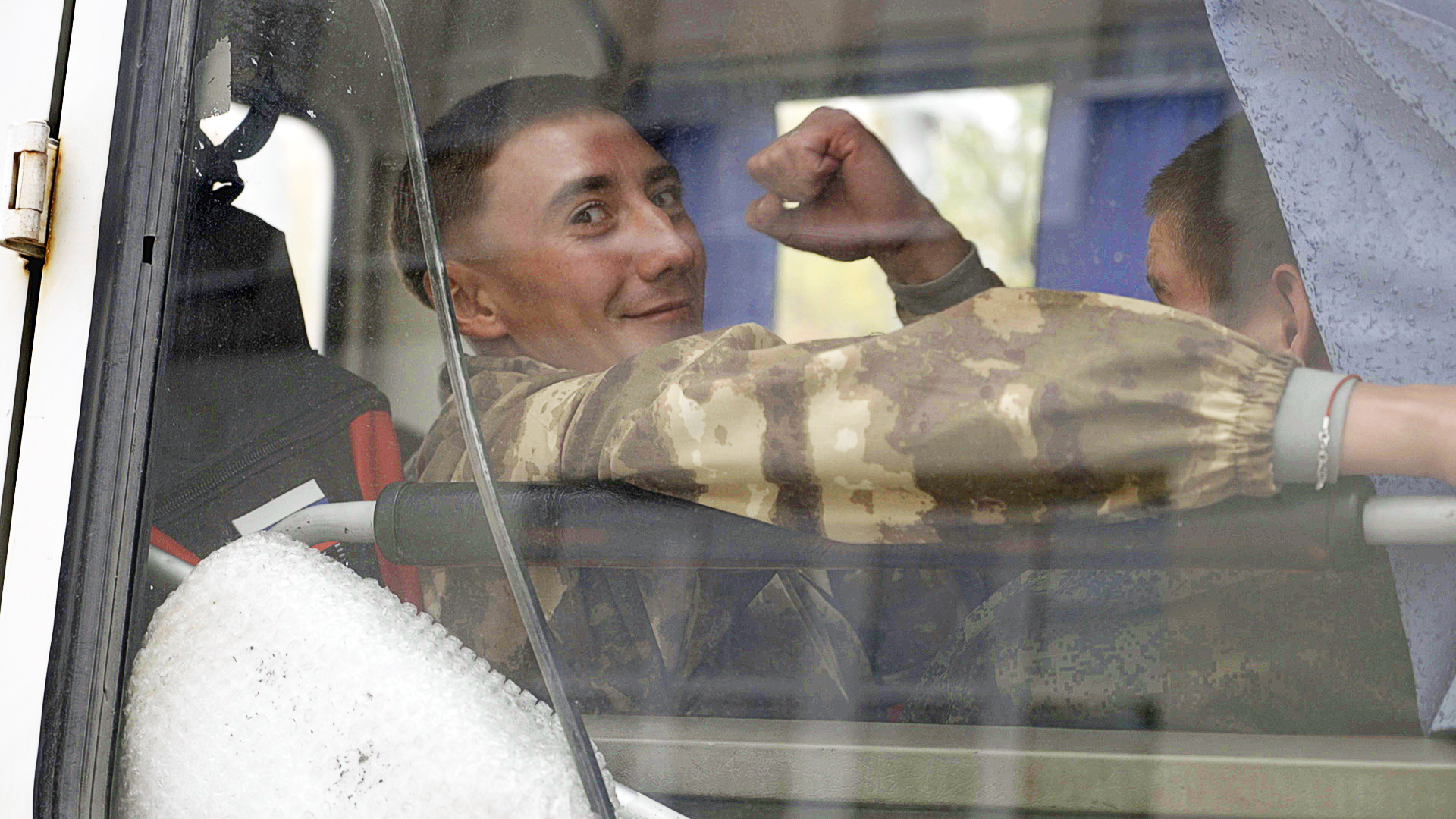MOSCOW — The atmosphere at this temporary draft centre in Moscow was far from upbeat; the sombre mood clashed with the heroic messaging of the Soviet-era war films playing largely unwatched on an array of TV screens.
A bewildered-looking young man sat sullen-faced in the corner. Within an hour, he and the rest of his fellow conscripts here would be in full camouflage, sitting on a bus taking them to their country’s war in Ukraine.
Videos by VICE

That draftee is just one of around 300,000 men the Kremlin plans to conscript into the army by the end of October, in what President Vladimir Putin has called a “partial mobilisation”.
But there is nothing partial about the effort for the families of the men who have been called up to take the place of the tens of thousands of Russians already killed or injured in Putin’s faltering war.
To meet the draft quota, mayors and governors across Russia have commandeered public buildings to serve as draft centres. The Roman Viktyuk Theatre, a striking constructivist building north of Moscow’s city centre, is just one of a number of conscription centres set up in the Russian capital. In September, its main stage hosted live plays. When VICE World News visited, it was populated by white cubicles for medical checks, processing around 100 recruits a day.

Some of the men who reported to the centre were still motivated by the false claims used by Putin to justify the war. “I feel proud of my country,” Alexei, a conscript in his twenties, told VICE World News. “I didn’t betray my duty, I will defend my motherland. Russia will be victorious.”
Speaking critically of the war is a crime in Russia, making it hard to know how any of the conscripts truly feel. However, one visibly disgruntled soldier mistook the VICE World News team for the Russian state media crew, who were also in the building, and turned down an interview request, saying: “You’ll just cut out what I say.”
Another conscript, 27-year-old Vitaly, told VICE World News that the mobilisation effort was “a difficult thing to comment on.”
“Judging by the fact that I’m here,” Vitaly added, “I still have some kind of patriotism, maybe. Judging by the fact I haven’t fled the country.” When asked about the future of the war, he replied that he wasn’t “qualified to make predictions on that.”
Vitaly was given less than 24 hours to get ready and report for duty.
“My father lives in a different city,” Vitaly said. “I didn’t have time to say goodbye to him and the rest of the family. I would of course like at least a couple of days to say goodbye. I don’t know if it’s going to be possible now. It burdens me that I haven’t said goodbye to my father.”
When it was time for the conscripts to leave, the draft officer announces that they have three minutes to say goodbye to their parents and put their things on the bus. At that moment, Vitaly’s father, Yaroslav, finally arrived at the centre. He hurriedly handed his son some water and a yoghurt over the metal barriers set up to separate the conscripts from their families.

“On TV I saw they gave out helmets and body armour [to conscripts] in the regions,” Yaroslav later told VICE World News. Here, [Vitaly] needed to bring his own belt” he added, frustrated and upset.
But a lack of kit is just one of the endemic problems that have plagued Russia’s mobilisation. Multiple videos circulating online appear to show recruits being issued rusty rifles, being told to use tampons to dress wounds and being sent to the frontlines with no training at all.

Meanwhile, the draft has disproportionately targeted poor people, ethnic minorities and included those who should be exempt, such as full-time students. Protests have broken out in some regions, and there have even been cases of people shooting draft officials and officers at training camps.
Despite this, the Kremlin has continued to play down the nature of the wider conflict, maintaining the invasion remains a “special operation.” But the draft process is making it increasingly clear to Russians that this is an all-out war, with all the risks war brings. According to independent polling by the Levada centre, nearly 50 percent of Russians say that the draft has caused feelings of anxiety, fear or horror,
Yaroslav feared what might happen to his son.
“My wife died three years ago, and I only have my son left,” he said. “Hence there is fear that…” Yaroslav added before his voice breaks and trails off.
“Of course, I have to let him do his duty,” he eventually composes himself to say. “It’s just so sudden.”
Russians like Yaroslav may fear the consequences of war, but they still largely support the conflict. According to the Levada centre poll, the “partial mobilisation” has only caused overall support for the war to drop by 4 percent.
But these numbers don’t give the whole picture. President Putin has spent his two decades in power tightening control of the media and silencing opposition to his government. This has left very little room for Russians to question the pro-war narrative.

As the newly conscripted soldiers at the draft centre packed onto an ageing minibus, more patriotic music blares at full volume from a pair of overstretched speakers.
A draft officer shouted as they pulled away: “We’ll all be waiting for you at home.”





